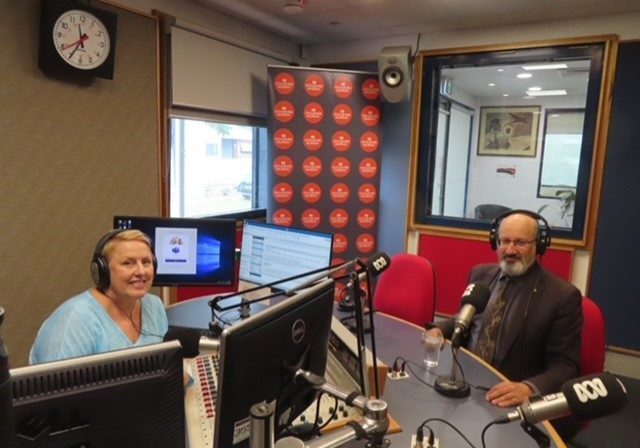Australia/Israel Review
Editorial – Two Crises
Nov 1, 2006 | Colin Rubenstein
Colin Rubenstein
It has been an eventful month, even by the standards of 21st century global politics. At either end of the Asian continent, nuclear proliferators have cast sand into the gears of the global mechanism that is designed to prevent the spread of atomic weaponry. In Northeast Asia, North Korea conducted an underground nuclear test, although there is some question as to whether it was fully successful or not. And in West Asia, the Iranians have once again re-confirmed their intention to continue their uranium enrichment program.
It really doesn’t matter whether Kim Jong Il’s bomb exploded with a bang or a whimper. The very fact that Pyongyang has brazenly undertaken a nuclear test bodes ill for us all. Three years ago, North Korea gave notice of withdrawal from the Nuclear Non-Proliferation Treaty (NPT) that it had signed and ratified in 1985. And the reality that Pyongyang has put its nuclear rhetoric into action delivers a body blow to international efforts to stem the diffusion of atomic weapons throughout the globe.
After all, if the North Koreans can acquire them with impunity, then many other despots will want them too. And the Iranians are first on the list of rogues who are trying to thrust their hands inside the radioactive biscuit jar.
And while the prospect of Iran acquiring nuclear weapons is bad enough in theory, it is rendered downright terrifying in practice by the intemperance of those who are at the helm of the Islamic Republic. This regime sent ill-trained teenagers to conduct human wave attacks against enemy tanks during the 1980-1988 Iran-Iraq war. Each Iranian boy was equipped with an AK-47 and a plastic key. The rifle was issued to kill Iraqi soldiers and the key was issued to guarantee entry into paradise at the bloody end of a battlefield career that was usually measured in days at most.
And today President Ahmadinejad resurrects the spirit of this zealotry when he muses about the need for a global cataclysm that will claim the lives of millions. He theorises that such a catastrophe is required to usher in the messianic era of the ‘Mahdi,’ the Islamic expected one. He says he has a “connection” to God and that God guarantees that Iran will prevail and, as believers, be protected from any negative consequences inflicted by infidels.
The simple fact is that rational values of cost-benefit analysis are not the hallmark of this regime.
This is on top of his insistence that Israel must and will be destroyed, that its existence is the “greatest insult to human dignity” and that the Holocaust is a “fairy tale.”
The Cold War dynamic of deterrence between the US and USSR rested upon the proposition that both protagonists operated on a similar wavelength of rationality. But it should be obvious from the above that any attempt to bridge the cultural chasm through the application of similar assumptions to the thought process of the Iranian mullahs appears extremely problematic. How do you deter someone who may actively seek a military conflagration in pursuit of his religious doctrine, or who believes he is divinely protected from any counter-measure you may take? Answer: it is impossible. Thus, we had better be ready to do whatever is necessary to make sure that any bombs that the Iranians might launch are conventional, and not nuclear.
Across the border in Iraq, we are facing a crisis of another sort. The inter-ethnic and sectarian violence that is ravaging portions of the country are increasing. And an increasingly feckless government led by Nuri al-Maliki seems neither able to take the tough measures that are required to stem this wave of tit-for-tat violence, nor to unite the various Iraqi communities into a stable federal structure.
Yet despite all the disheartening news, we must persevere in Iraq. We must keep on keeping on because we owe it to the people who we liberated at such cost to them and ourselves. We must continue in our efforts because, along with the bad, there is considerable good happening as well. The terrible violence that we see each night on our TV screens is limited to a relatively small part of the country. Elsewhere in Iraq, things may not be perfect, but reconstruction proceeds apace.
But it does not help us to remain steadfast when political opponents of the war stoop to the use of false science in a blatantly politicised attempt to undermine support for the war on the home fronts of Britain, Australia and the US. In his “Deconstruction Zone” column in this month’s AIR, Ted Lapkin debunks the Lancet study that has made headlines in recent weeks with its obscene overestimate of Iraqi civilian casualties. The empirically established civilian price of the conflict in Iraq certainly has been heartbreaking enough, without the sort of intellectual dishonesty being peddled by a formerly prestigious medical journal which only serves to impoverish what needs to be an important policy debate.






